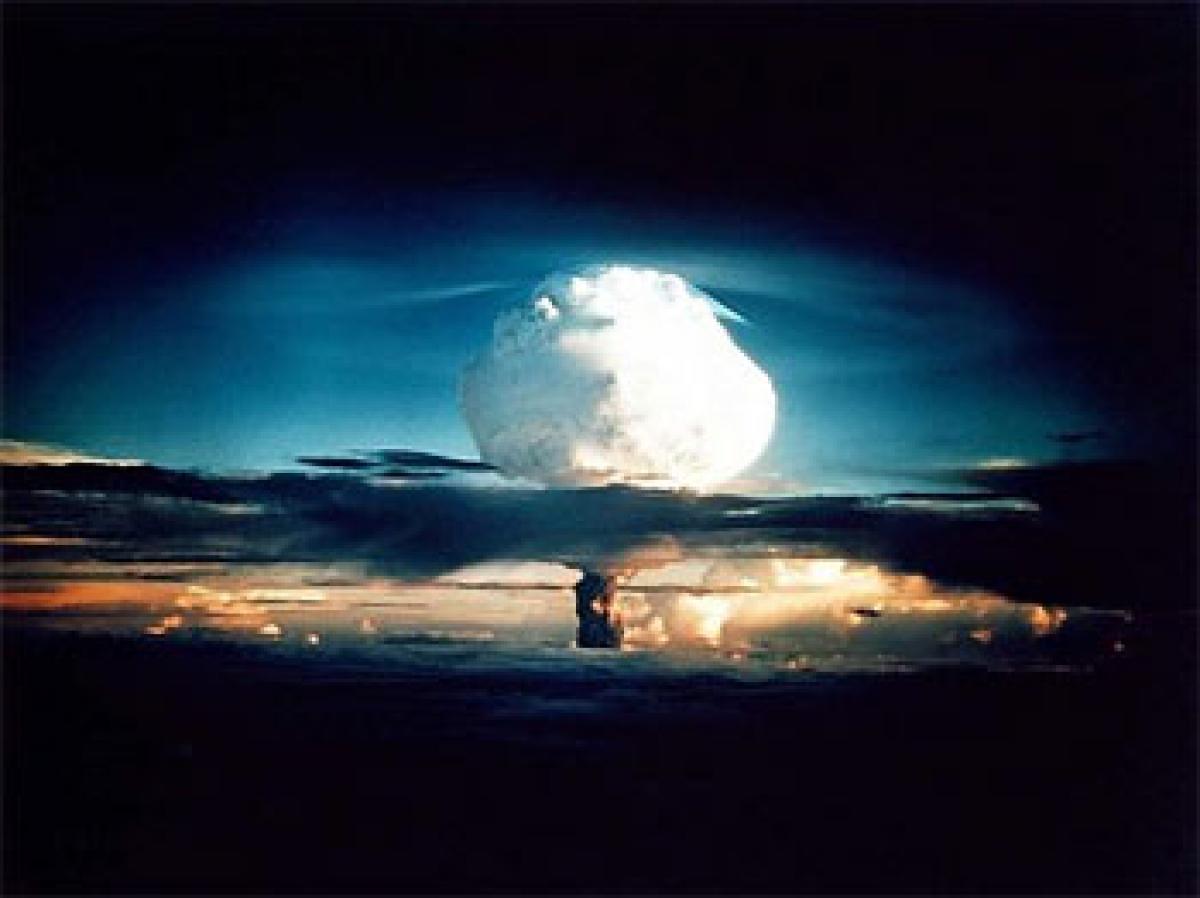Live
- Supreme Court trashes pleas challenging insertion of ‘Socialist’, ‘Secular’ in Preamble to Constitution
- iPhone production reaches $10 bn in India in April-Oct, creates 1.75 lakh direct jobs in 4 years
- Australian govt orders national review into school bullying
- Isro's Busy End to 2024: Key Space Missions, Including Spadex and Proba-3, Planned for December
- Rajaka Udyoga Sangam new committee elected
- Astronauts Stuck in Space: Sunita Williams and Barry Wilmore's Mission Extended Until February 2025
- 'Muslims don't vote for JD(U)', says Union Minister Lalan Singh
- St. Joseph’s organises literary fest
- Indian GenAI startups see 6 times surge in funding in Q2
- Revanth is a liar: Errabelli
Just In

A grave political and security crisis is enveloping the Korean peninsula once again posing a serious threat to geopolitical security in the strategic Asian region. The intermittent tensions between China and Japan are already haunting the region with a potential to spill over into a larger crisis.
A grave political and security crisis is enveloping the Korean peninsula once again posing a serious threat to geopolitical security in the strategic Asian region. The intermittent tensions between China and Japan are already haunting the region with a potential to spill over into a larger crisis.
The United States attempt to encircle China through its strategic bonds with Japan is resulting in further militarisation of China, causing instability and imbalance in this region. The escalation of weapon race in Korean peninsula would further complicate the situation.
The fresh imbroglio is on the claims made by North Korea that it had successfully detonated Hydrogen bomb. This thermo nuclear weapon has the more lethal potential than even an atom bomb. But, China and even US are yet to confirm the Pyongyang claims. The atomic experts are also sceptical.
The nation crippled by long years of economic sanctions cannot so easily acquire such an advanced nuclear muscle. However, it may even be an attempt by North Korea to send warning signals to its hostile neighbour South Korea, militarily backed by US. Leaving aside the veracity of the North Korean claim, the emerging tensions need to be urgently addressed.
Instead of defusing the tensions, the United States and the United Nations Security Council are responding with the threat of further sanctions on the beleaguered nation. Such a further isolation would only intensify the sufferings of the people, thereby bolstering the resolve of the North Korean leadership to further pursue the military path.
Instead, the six nation talks among both the Koreas, US, Japan, China and Russia should be set in motion to facilitate an amicable solution to the vexed question. Hawkish tendencies on both sides cannot help in solving the problems. Instead, diplomacy can do so.
The Syrian peace deal is a case in point. The world powers could hammer out a peace accord despite diametrically opposite stands on many aspects of the Syrian problem. Similarly, the Iranian nuclear question which once seemed to be intractable could ultimately see a deal.
Thus, the six nation talks can ensure an amicable solution. The negotiations should focus on de-escalation of tensions between North and South Korea, ultimately paving the way for reunification of Korea separated by cold war politics.
The reversal of tough nuclear stand of North Korea is not possible without demilitarisation of Korean peninsula. The US has stationed 28,000 troops in South Korea, providing this nation a military cover much to the concern of North Korea.
The US military bases elsewhere also raise similar concerns. The Iran’s concern over Saudi Arabia is an illustration of this. Chinese fear over military build-up of US in Japan is yet another example.Therefore, the de-escalation and demilitarisation should go together.
The Nuclear-Haves led by US should eschew their policy of nuclear apartheid wherein they push through non-proliferation turning a blind eye to disarmament. Thus, the nuclear club lacks legitimacy to curb hawkish nuclear position of others.
Besides the specific regional initiatives, resolution of the Korean crisis is also intricately linked to the post cold war world order which needs to be democratised.

© 2024 Hyderabad Media House Limited/The Hans India. All rights reserved. Powered by hocalwire.com







